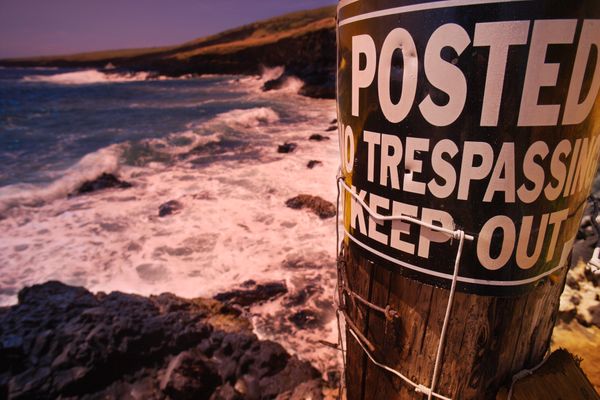In 2006, Laurie Dishman, a passenger onboard a Royal Caribbean cruise ship sailing the Mexican Riviera reported being raped in her stateroom. She immediately returned to Los Angeles, where two FBI agents took her statement a week later, and told her there was nothing they could do. Ultimately, this case prompted the following year's congressional hearing.
International maritime law requires that cruise ships take every possible measure to provide safe passage. But when something goes wrong, jurisdiction is difficult to sort out.
At the time of the alleged rape, the ship was in international waters, but Royal Caribbean is registered in Liberia, and the ship was docking in Mexico through the voyage. The cruise line noted 66 cases of alleged sexual assault between 2003 and 2005, without a single one prosecuted successfully. Dishman was instrumental in having the 2010 Cruise Vessel Security and Safety Act passed by Congress. This requires cruise lines to report sexual assaults and other crimes that occur on cruise ships.
Shockingly, 220 sexual assaults on cruise lines had been reported to the U.S. Department of Transportation between 2016 and 2019.
Because maritime law is so difficult to clarify (in part because every country has its own version of it), most cases of cruise ship crime are decided on a case-by-case basis. Law on a cruise ship (or any other ship) starts with the flag the ship is flying under. A ship flies the flag of the country where it's registered, and, in general, the laws onboard a ship are the laws of that country. However, when figuring out which laws apply to a sea vessel, the territory also must be taken into consideration. Legal jurisdiction on the sea goes something like this [source: Justia]:
- A country's internal waters— areas like bays and ports — are a part of that country. So when a ship is docked at the Port of Miami, all U.S. (and Florida) laws apply to the ship, its passengers and its crew.
- Almost all of a nation's laws also apply in its territorial waters which extend up to 12 miles from its coastline (we'll look at an exception a little later). A ship departing from a U.S. port cannot open gambling activities until it's 12 miles out since gambling is illegal in most parts of the United States.
- A nation has limited jurisdiction in its contiguous zone— the area 12 miles to 24 miles from its coast. A country has certain rights within that zone, such as patrolling its borders. For instance, within 24 miles of the U.S. coast, the U.S. Coast Guard is allowed to board any ship suspected of drug smuggling, regardless of which flag it's flying under.
- Once a ship is 24 miles from any coastline, it's on the high seas (or international waters). With the exception of certain rights within the contiguous zone, the law of that ship is the law of the country whose flag it's flying. So, a Liberia-registered cruise ship that's 25 miles off the coast of California isn't subject to U.S. law; it's subject to Liberian law.
Lawsuits against a cruise line are different, though. While it might seem like a U.S. citizen robbed in U.S. territorial waters off the coast of Los Angeles could sue the cruise line in Los Angeles, it actually depends on the cruise ship ticket's fine print. If the ticket says the cruise line can only be sued in Seattle, then a Los Angeles court will almost always refuse to hear the case.
This can all be bad news for the victim of cruise ship crime. But for the millions of people who take a cruise so they can engage in all the good-natured debauchery they want, the legal freedom of the high seas is actually good news. After all, if U.S. law applies on a U.S.-registered ship, how can that ship allow gambling? It's all about international waters.



